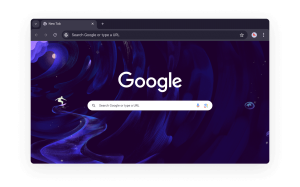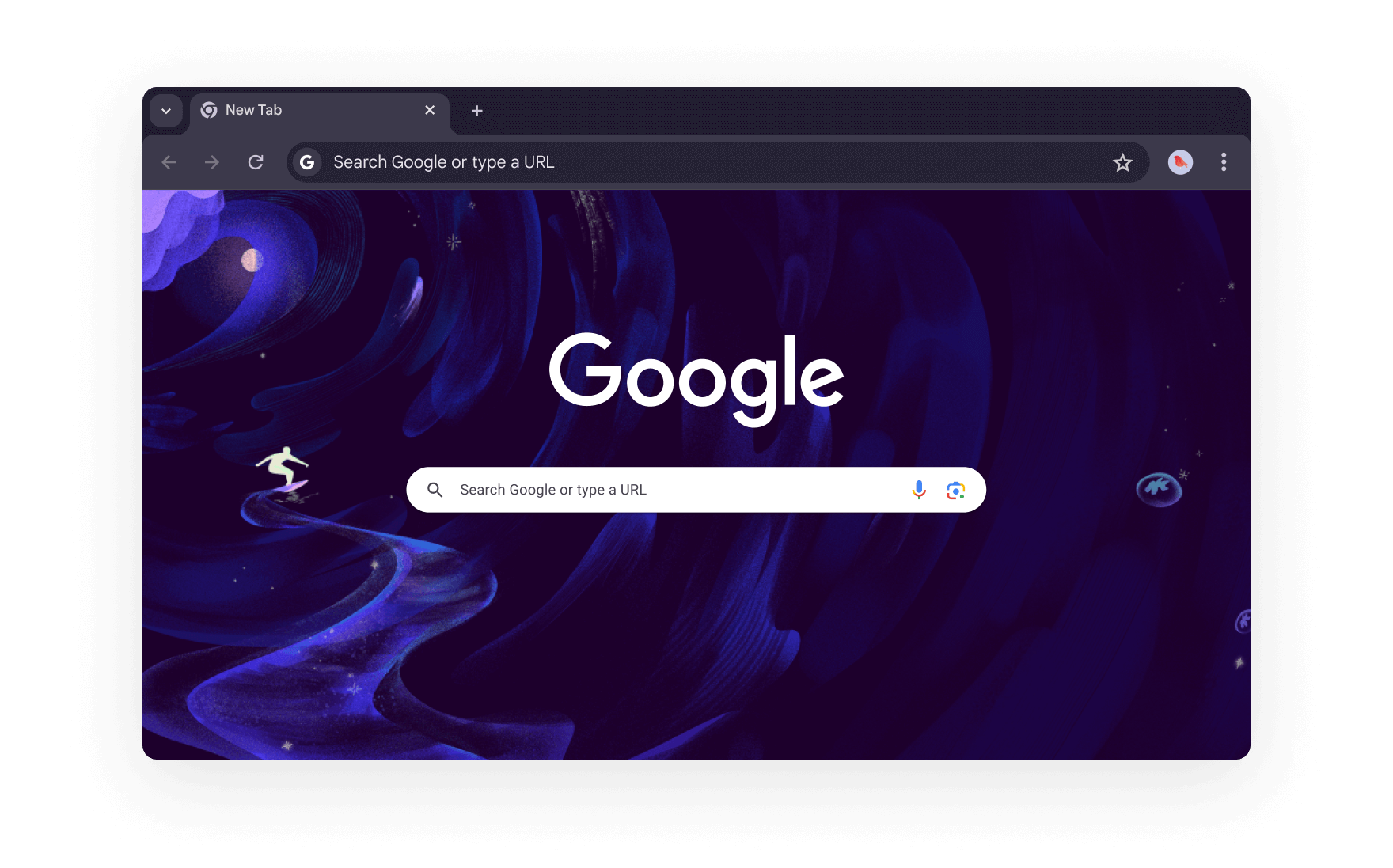
Google is significantly enhancing the accessibility of its artificial intelligence capabilities within the Chrome browser on mobile devices. The technology titan announced a strategic update that integrates a new, dedicated shortcut button for "AI Mode" directly under the search bar on the "New Tab" page for both iOS and Android users. This move is poised to fundamentally alter how users interact with search on their smartphones and tablets, streamlining the path to complex queries and deeper informational dives.
The Dawn of AI-Powered Search
The digital landscape has undergone a seismic shift with the advent of generative artificial intelligence. For decades, Google Search stood as the undisputed gateway to the internet’s vast information repository, refining the art of information retrieval through sophisticated algorithms. However, the emergence of large language models (LLMs) and generative AI, epitomized by tools like OpenAI’s ChatGPT, introduced a new paradigm: conversational AI capable of synthesizing information, generating creative content, and engaging in nuanced dialogue. This represented a direct challenge to the traditional search engine model, prompting tech giants, particularly Google, to accelerate their own AI integration strategies.
Google, long a pioneer in AI research with its "AI-first" mantra, found itself in a rapidly evolving competitive environment. While its foundational AI research, including the Transformer architecture that underpins many modern LLMs, was significant, the public rollout of consumer-facing generative AI tools by competitors spurred a rapid response. The company’s answer manifested in various forms, including the development of its own conversational AI, initially known as Bard and later rebranded as Gemini, and the strategic infusion of AI directly into its core products, most notably Google Search itself through features like the Search Generative Experience (SGE), which encompasses "AI Mode." This strategic pivot underscores Google’s commitment to evolving search beyond mere links, transforming it into an interactive, intelligent assistant.
Democratizing AI Mode Access
The introduction of a dedicated shortcut button is more than a minor UI adjustment; it is a deliberate effort to reduce friction and increase user adoption of AI Mode. Previously, accessing these advanced AI functionalities might have required specific query phrasing or navigating through less prominent interfaces. By placing a clear, easily discoverable button on the "New Tab" page, Google aims to make AI Mode an intuitive and immediate option for mobile users. This design choice recognizes the "mobile-first" nature of contemporary internet usage, where speed and simplicity are paramount.
The rollout commences in the United States, providing a foundational user base for early feedback and refinement. Following this initial launch, Google has ambitious plans to extend the shortcut’s availability to 160 new countries and incorporate support for an expanded array of languages. Crucially, this includes major global languages such as Hindi, Indonesian, Japanese, Korean, and Portuguese, among others. This widespread deployment underscores Google’s global reach and its intent to ensure that advanced AI capabilities are not confined to a select linguistic or geographic demographic, but rather made accessible to a truly international audience. The strategic localization is key to fostering widespread engagement and integrating AI Mode into the daily digital routines of billions.
A Timeline of AI Mode’s Evolution
Google’s AI Mode, an integral component of its broader Search Generative Experience, has undergone a rapid evolution since its initial public unveiling. The feature was first introduced in March, marking Google’s significant step to incorporate generative AI directly into its search results. At its core, AI Mode was designed to enable users to pose complex, multi-part questions and engage in follow-up queries to delve deeper into topics, moving beyond the traditional keyword-based search paradigm. This initial release positioned Google to compete directly with emerging AI search experiences offered by platforms like Perplexity AI and OpenAI’s ChatGPT Search, which were gaining traction for their conversational capabilities.
Since its debut, Google has consistently enhanced AI Mode with a suite of new functionalities. By July, the "Canvas" feature was integrated, offering users a workspace to build study plans or organize information across multiple search sessions within a dedicated side panel. This marked a shift towards making AI Mode a productivity tool, not just an information source. Concurrently, Google Lens was incorporated, allowing users to leverage visual search to ask questions about content directly displayed on their desktop screens, blurring the lines between visual and textual input.
August saw a significant expansion of "agentic capabilities" within AI Mode. These features transcend simple information retrieval, empowering the AI to assist with real-world tasks. The initial agentic rollout focused on practical applications, such as finding and facilitating restaurant reservations. This was a critical step in transforming search from a passive information provider to an active digital assistant. Building on this, the day before the shortcut announcement, Google further extended these agentic functions, enabling AI Mode to help users with booking event tickets and scheduling beauty and wellness appointments. These advancements demonstrate a clear trajectory towards an AI that not only understands user intent but also helps execute corresponding actions.
Parallel to these feature enhancements, Google has prioritized global accessibility. The company recently expanded AI Mode’s availability to a total of 180 countries, dramatically increasing its global footprint. Furthermore, support for additional languages, including Hindi, Indonesian, Japanese, Korean, and Brazilian Portuguese, was integrated. This linguistic diversity is vital for a company with Google’s global user base, ensuring that the benefits of AI-powered search are available to a broader spectrum of the world’s population.
The Strategic Imperative: Battling for Attention
Google’s intensified focus on making AI Mode readily available on mobile devices is a clear strategic maneuver in the high-stakes battle for user attention in the generative AI era. The core objective is to defend and evolve its dominant search franchise against a new generation of competitors. Companies like OpenAI, with ChatGPT, and startups like Perplexity AI, have demonstrated the immense appeal of conversational interfaces that provide synthesized answers rather than lists of links. By making AI Mode more accessible, Google aims to keep users within its ecosystem, preventing them from navigating to rival platforms when seeking AI-powered assistance.
The mobile platform is particularly crucial in this competitive landscape. Smartphones are the primary internet access point for billions globally, and the expectation for seamless, intuitive experiences is higher than ever. If users find it easier to access generative AI on a competitor’s app or website, Google risks losing valuable engagement and, eventually, advertising revenue – the lifeblood of its business model. The dedicated shortcut is a direct response to this threat, embedding AI capabilities directly into the most frequently used browser on mobile, thereby integrating AI into daily browsing habits rather than making it an optional, separate activity. This move reinforces Google’s strategy to infuse AI into existing, familiar products, leveraging its vast user base and established platforms.
Beyond Information Retrieval: Agentic AI and User Experience
The evolution of AI Mode, particularly with its "agentic capabilities," signifies a profound shift in the very nature of search and user interaction. Traditional search engines excelled at "information retrieval," providing links to relevant content. Generative AI, especially when imbued with agentic features, moves beyond this to "information synthesis" and "task execution." Instead of merely finding a restaurant, AI Mode can now assist in booking a reservation. Instead of simply listing events, it can help secure tickets. This transformation promises a more proactive and assistive digital experience.
For users, this means a more powerful and efficient way to accomplish tasks that traditionally required switching between multiple apps or websites. The AI acts as a smart intermediary, understanding complex intent and performing multi-step actions on the user’s behalf. This could significantly reduce cognitive load and save time, enhancing overall digital productivity. From a social and cultural perspective, this pushes us closer to a future where digital assistants are not just answering questions but actively participating in our daily routines, managing appointments, and facilitating transactions. However, this also raises questions about the degree of automation users are comfortable with, the accuracy of AI-driven actions, and the need for clear transparency regarding AI’s capabilities and limitations.
Global Reach and Linguistic Diversity
The expansion of AI Mode to 160 additional countries and its support for a wide array of languages is a testament to Google’s commitment to global inclusivity and market penetration. For a company whose services are used by billions worldwide, offering advanced AI features in local languages is not just a convenience; it’s a necessity for relevance and adoption. In many parts of the world, English is not the primary language, and providing AI tools in languages like Hindi, Indonesian, Japanese, Korean, and Portuguese unlocks vast new user bases.
This global rollout also acknowledges the diverse cultural contexts in which AI will operate. Language nuances, cultural preferences, and local search behaviors all influence how users interact with AI. By investing in multi-language support, Google aims to ensure that AI Mode is not just translated but localized, providing a more natural and effective experience for users across different regions. This approach is critical for fostering trust and ensuring that AI-powered search becomes a truly universal utility, rather than a niche feature for English speakers.
Challenges and Considerations
While the accelerated integration of AI into Chrome on mobile offers significant benefits, it also presents a range of challenges. Ensuring the accuracy and reliability of AI-generated content remains paramount. Generative AI models, while powerful, can sometimes produce "hallucinations" or provide inaccurate information. Maintaining a neutral, objective journalistic tone in AI-generated summaries is also a complex task, as is preventing the creation of filter bubbles that limit users’ exposure to diverse perspectives. Data privacy and security are further considerations, particularly as AI handles more personal and transactional tasks. Google will need to continuously refine its AI models and implement robust ethical guidelines to build and maintain user trust.
The Future of Mobile Interaction
Google’s move to simplify access to AI Mode in Chrome on mobile is a pivotal step in the ongoing evolution of how we interact with information and digital services. It signifies a clear direction towards a future where AI is not just an add-on but an intrinsic, always-available layer of our browsing experience. As AI capabilities continue to advance, we can expect mobile browsers to become even more intelligent, proactive, and personalized. This development is not just about competing in the current AI landscape; it’s about shaping the future of mobile interaction, setting new standards for convenience, efficiency, and intelligence in the palm of our hands.







